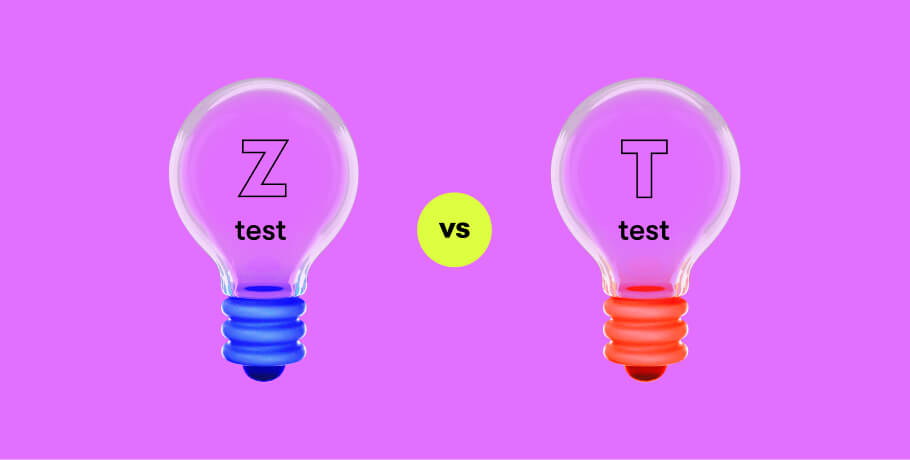We decided to identify causes of burnout and ways to prevent it. 2020 was a turning point for most businesses and employees. We were forced to redefine how we worked, switch to working from home, and figure out how to cope with numerous challenges. Burnout was one of them. In this post, we'll share our findings and insights from professionals, so keep on reading!
What is burnout anyway?
Do you remember the dementors from Harry Potter? Those dark creatures fed on the happiness of their victims. Burnout is like a dementor. It drains your emotional and mental energy, leaving you disinterested in and dissatisfied with your productivity, achievements, and things that used to excite or energize you.
Christina Maslach, Professor Emerita of Psychology at the University of California, Berkeley, and a researcher at its Healthy Workplaces center says that distinctive indicators of burnout include a cynical attitude, exhaustion, and self-criticism.
Burnout is tricky because its symptoms can be similar to fatigue or stress. In reality, though, burnout results from chronic physical and emotional exhaustion and stress. That's why it's vital to figure out what causes burnout and eliminate negative factors in your life before they lead you down the path to burnout’s disruptive consequences.
"Usually, an average person, not familiar with the term burnout, will have noticed the symptoms too late, when the recovery process will require a lot of time and effort. Therefore, I believe this is an important topic of general development, aiming to prevent or put an end to your self-destructive behavior, in order to maintain your mental health."

Top causes of employee burnout – in 3 categories
1. What causes burnout at work
A recent survey by Indeed (1) shows that during the COVID-19 pandemic, cases of employee burnout surged from 42% to 53% in the US, while 67% of respondents said that during the pandemic, burnout worsened.
Some of the commonly-identified causes in the workplace are:
- Absence of control. A common reason that employees feel stressed during #WFH (Work From Home) is the absence of control over their work. 27% of survey respondents were unable to disengage from their work, worked longer hours each day, and had difficulty juggling their home office duties and their family life.
- Absence of rewards. Another study by SpringHealth (2) shows that 33% of workers aged 35-44 say that insufficient PTO contributes to their burnout.
- Dysfunctional work environment. According to Gallup (3), 45% of American employees experienced workplace harassment or discrimination in the past one year. These incidents included bullying from a boss or management, aggressive communications, and yelling.
- Lack of leadership support. When management doesn't recognize employee effort and achievements, work becomes a marathon without clear milestones or a finish line that eventually leads to employee burnout.
Some causes of job burnout aren't obvious. For example, remote work and flexible working schedules might seem as though they protect employees against burnout. Instead, they can place employees in a spin-cycle of work without rest, hobbies, or a personal life. If the company fails to cultivate a healthy work style, it falls to the employees to set boundaries and limit stress-inducing factors. According to another Gallup research (4), other causes of burnout at work include: unreasonable deadlines, unmanageable goals, unfair treatment, and inconsistent communication from management.
2. Personal causes
Sometimes, the causes of job burnout are personal and internal to the employee. Non-job-related factors that contribute to chronic stress, frustration, and burnout, include:
- Childhood experiences. The root causes of many adult issues tie back to childhood. Research suggests (5) that adverse childhood experiences can have an impact on how people deal with stress, and increase the likelihood of burnout in adulthood.
- "Helper" personality. Individuals who are drawn to the helping professions, like doctors, nurses, teachers, and caregivers, are prone to burnout because of the nature of their work.
- Social isolation. Sarah Pressman's research on loneliness is striking. Having researched factors that decrease longevity, she found that social isolation can reduce longevity by 70%. In comparison, obesity decreases longevity by 20%, and alcohol by 30%. In the shorter term, loneliness can also contribute to burnout at work.
- Negative perfectionism. Not all perfectionism is a bad thing, but people who never feel satisfaction from their achievements, or who feel that nothing is ever good enough, experience stress as a result, which can result in burnout.
Once, I was the youngest specialist in a company of 100+ people, and it seemed that I needed to give 1000% of my capacity to prove that I'm a worthy professional. At some point, I began to demand more than I could physically do from myself and blame myself if something didn’t go according to plan. Likewise, constant looming deadlines and overtime work (voluntarily and not so much), and other stressors accumulated and exceeded the feeling of satisfaction from work. To get results and meet deadlines, I began to give up my hobbies, walks with friends, and rest time. Oftentimes, I would skip lunch, because each incoming task was urgent and was due yesterday (in the moment, of course, you don’t understand that it’s harmful to you, you want to show good results at work, but what it costs and is it worth your health?) At first, you think, well, this week I'll work overtime but next week it will be easier, but it pulls you in, and the following week passes at the same pace, and another one, and then months... I spent a year and a half like this. My symptoms accumulated, I hadn’t been paying attention to them for a long time, and, as a result, one fine day, I had insomnia, chronic fatigue, complete apathy for work, irritability, and a broken pencil would make me cry. Until that moment, I didn’t know what burnout was, and noticed it in such a neglected state in myself, that it was difficult to get out of it.

3. Lifestyle mismatch
Our lifestyle impacts our wellbeing, just like job-related and personal factors do. If your life includes the factors below, it may be time to think about making some changes.
- Lack of sleep. Physical factors like sleep deprivation are among the possible burnout causes. Scientists estimated that less than six hours of sleep per night is a major predictor of job burnout. Lack of sleep, or insomnia, can also be symptoms of burnout, leaving you fatigued during the daytime, but unable to sleep when you have the chance.
- Lack of hobbies and social activities. Hobbies like painting, handmade crafts, and playing music have a therapeutic effect on people. Research described in the "Association of Enjoyable Leisure Activities With Psychological and Physical Well-Being" involved more than 1300 participants, and led scientists to conclude that hobbies positively impacted both mental and physical health. Participants noticed lower blood pressure, improved cortisol levels, and better physical functioning.
- "Overachiever" mindset. Western culture and the "get rich or die trying" philosophy dictates a certain lifestyle. Movies, music, interviews with celebrities, and numerous motivational books, send a clear message: you can't be happy without money and success. Even more disturbing is the pseudo-psychological motivation from influencers who tell you to push your limits and try harder every day. Need we say more about this misleading and toxic mindset?
Less obvious causes of burnout you haven't considered
In addition to some of the common causes that resonate with people who’ve fallen down the burnout rabbit hole, there are also less obvious causes of burnout at work. These causes of employee burnout can be like the constant dripping of water that eventually wears down a stone:
- Uncomfortable workplace – a bad chair, the wrong temperature, a bad Wi-Fi connection – these are the kinds of things that make you feel stressed all the time, especially while you are engaged in critical tasks, like communication with a team.
- Long commute to your workplace – this can leave you with the feeling of wasting your life in traffic jams and like your commute is practically a part-time job.
- Lack of career growth and challenges – normally, these create a healthy sense of competition and striving for personal development, in their absence, you may feel perennially unfulfilled.
- Being required to do things you don't want - working at a job you hate, mandatory involuntary overtime, or the expectation that you will express emotions you don't actually feel can be relentlessly draining.
- Being unable to take responsibilities or new duties at work.
- Unhealthy and toxic relationships in the workplace (especially with your boss).
“Once the pandemic started and we started working from home, I felt like I had to be reachable every minute of my life. I was afraid to miss something important - FOMO captured me. I thought people expected me to answer immediately so they would have no doubt that I'm there and working. It put a lot of pressure on me and exhausted me very quickly. I can't say it's the only factor but, along with a number of other factors, I ended up burned out as a result. Later on, I realized that when I was working from an office, it was okay to take a break to grab some coffee and the world didn't explode when I didn’t reply right away. So why was it forbidden to follow the same rules working from home? In time, I realized that breaks are a necessary and essential element working from home.”

TL;DR
You shouldn't underestimate job burnout. It's a severe emotional and physical exhaustion with a host of associated symptoms. These can snowball from minor signs like bad mood or procrastination into depressive episodes, insomnia, anxiety attacks, and other disturbing health conditions.
Even people with a genuine passion for their job are prone to burnout. They risk contributing too much of their enthusiasm, time, and energy to tasks and people that don't give anything back. That's why it's important to regularly check in with yourself and be aware of sources of stress. Remember that identification of job burnout causes is half the battle and gives you a place to start so that you can take steps to address the issue, get whatever help you may need, and improve your life.
References
- Kristy Threlkeld, “Employee Burnout Report: COVID-19’s Impact and 3 Strategies to Curb It”, March 11, 2021.
- Siel Ju, “16 important statistics about employee burnout”, December 14, 2020.
- GALLUP 2021, “Build a Culture Where Every Employee Can Use Their Voice”.
- GALLUP 2021, “How to Prevent Employee Burnout”.
- University of Texas at El Paso. "Link between childhood adversity, burnout and depression." ScienceDaily. ScienceDaily, 9 October 2018.

Explore our Editorial Policy to learn more about our standards for content creation.
read more











.jpg)












